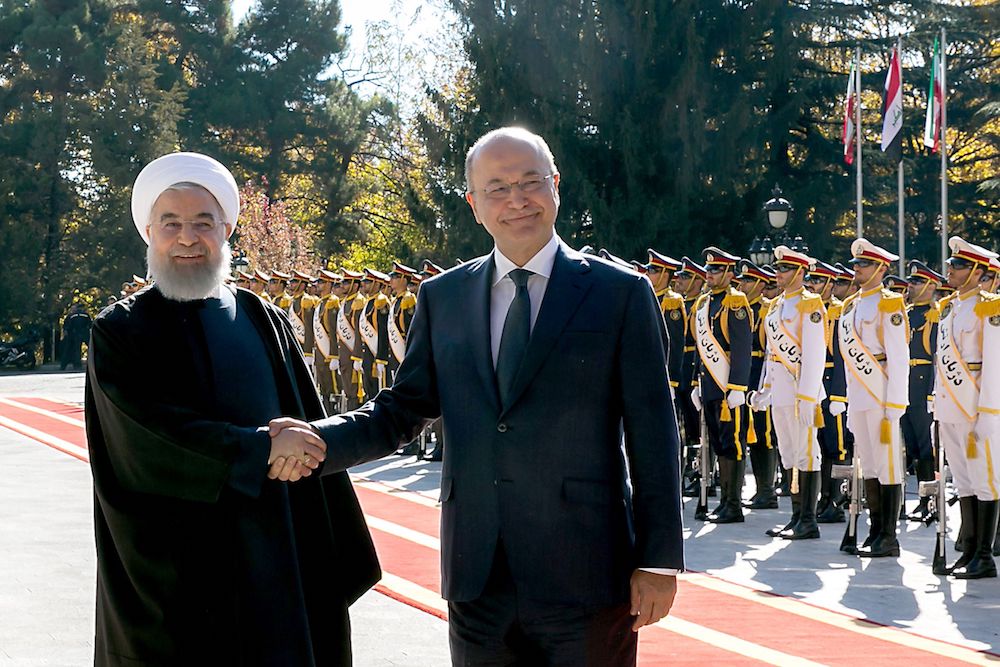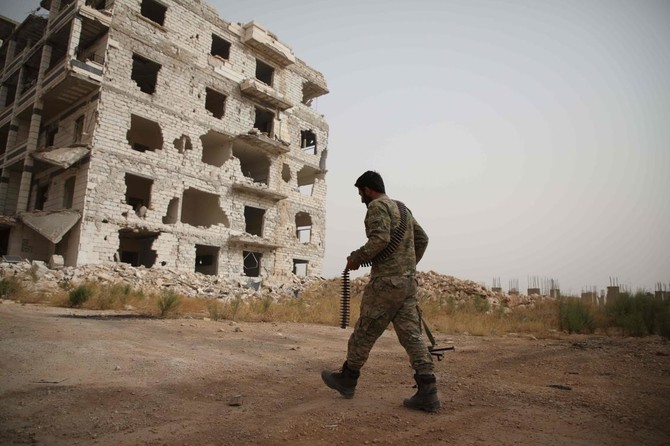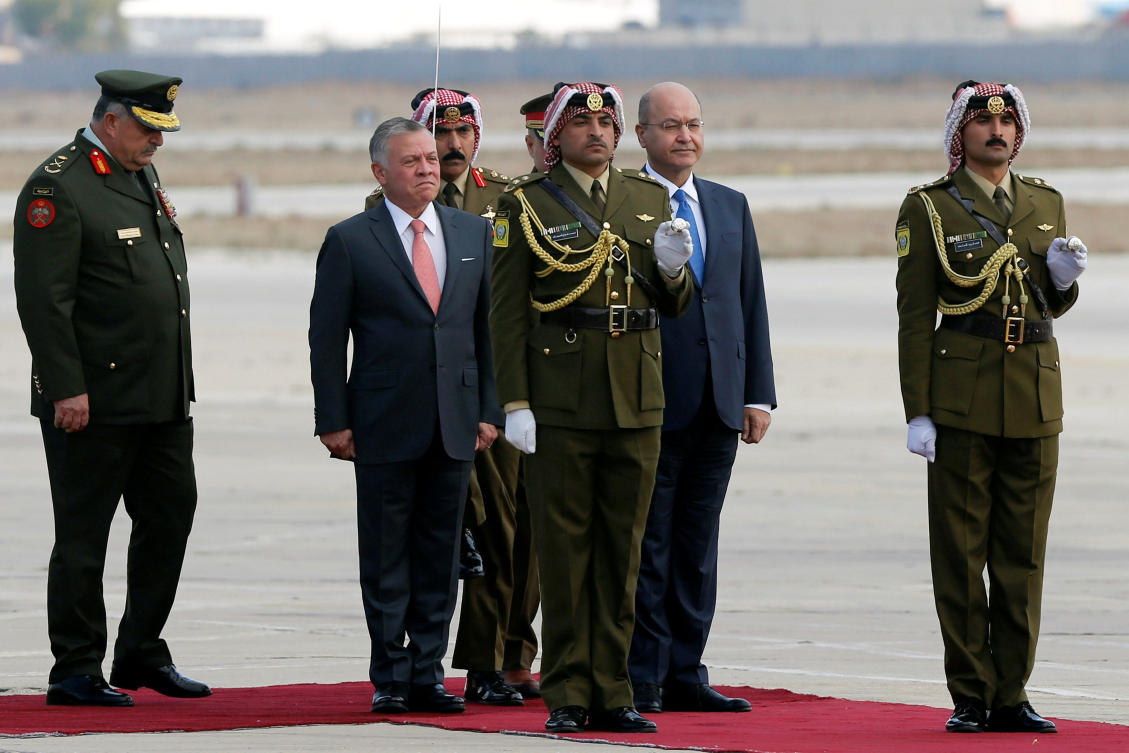Under crippling sanctions, Iranian leaders discuss economic ties with Iraqi president
BAGHDAD: The Iraqi president visited Iran on Saturday as Tehran seeks to shore up ties with its closest economic partners after crushing new sanctions were reimposed by the US.
Iran is struggling to cope with the impact of two waves of sanctions this year introduced after Donald Trump pulled America out of the 2015 Iran nuclear deal in May.
The second phase of sanctions earlier this month targeted the. energy sector, banks and shipping and placed Iraq in an awkward position. Baghdad relies heavily on imports from Iran and would face punishment if it breached the restrictions.
——
READ MORE:
The significance of the Iraqi president’s visit to Riyadh
——
President Barham Salih met his Iranian counterpart Hassan Rouhani and Supreme Leader Ayatollah Ali Khamenei. He spoke of the importance of economic relations between the two countries as Iraq rebuilds after the war against Daesh.
“We are carrying a clear and open message about the importance of social and economic relations with Iran, as we have close ties with the Iranian people,” Salih said in Tehran. “Iraq today is looking to restore its reconstruction and stability, and this requires internal and external political initiatives and requires a stable regional environment.”
Salih also spoke about a new regional system, in which Iraq would have a pivotal role, “to overcome the current differences and focus on the bilateral interests.”
“Iraq will continue its role as an arena to meet the interests of the peoples of the region, not as a battlefield for the conflicted wills,” he said.
Iraq has been a battlegrount between the US and Iran since the fall of Saddam Hussein in 2003.
Since elections in May, political factions divided roughly into pro and anti Iran camps, have been locked in a bitter struggle for control of a new government.
Many in Iraq feel Iran has too heavy a hand in the country, where it controls powerful Shiite armed factions.
The two sides also discussed “the environmental problems” related to the Shatt Al-Arab waterway that divides the countries in the south, establishing joint industrial areas on the border, and the possibility of a railway link between the two countries.
They also discussed increasing trade between Iraq and Iran, setting up a joint security committees and how to help the visa process for travel between them.
Rouhani said the two countries aimed to boost trade from $12 billion to $20 billion.
“We held talks on trade in electricity, gas, petroleum products,” Rouhani said.
Iran is hoping to maintain exports to Iraq despite the latest sanctions, which took effect on Nov. 5. The country has seen its oil exports plunge and its currency lose more than half its value.
The US has granted Iraq a 45-day waiver to allow it to continue to purchase gas and electricity from Iran for use in its power stations.
Iraq has suffered extensive electricity outages this year, sparking widespread protests in the south. Iraqi officials say they need more time to find an alternative source, Reuters reported.
Salih visits Saudi Arabia on Sunday as part of a regional tour that included Jordan, the UAE and Kuwait. Relations between the Kingdom and Iraq improved in 2017 as the two countries held a series of high-level meetings.
The sanctions have increased pressure on Iraq’s new Prime Minister Adel Abdul Mahdi. He still has not managed to get a number of key ministerial positions approved by parliament as the main rival factions jostle for influence.
Meanwhile, Iranian workers launched further industrial action as the country struggles under the weight of its economic woes.
Workers at Iran’s oldest sugar cane company went on strike on Saturday over unpaid wages, the Iranian ILNA news agency reported.
ILNA published a photo of a rally by workers from the Haft Tapeh company in Shush, south-western Iran, showing women marching with their children – one holding a sign saying: “We are hungry.”

Iraq’s president to visit Saudi Arabia as part of regional tourIraq restarts small Kirkuk oil exports after a year of suspension





